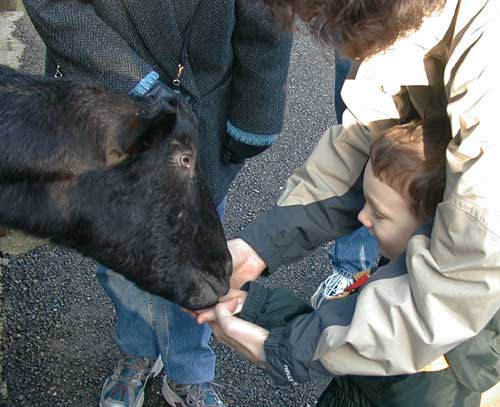As I’ve read Bruce Weigl’s Vietnam poems, I have begun to realize just how difficult it is to accurately convey the feelings of soldiers who fought there. Part of that difficulty stems from the simple fact that not everyone experienced the same war.
Obviously Weigl’s experiences, or at least the ones described in his poems, were more traumatic than my own. Thank God that I never had to witness the effects of napalm on enemy soldiers and civilians and that I am not constantly haunted by the effects described in one of his oft-noted poems, “Song of Napalm.” Although my platoon was shot at nearly every day while I was there, I never witnessed the kind of carnage that is reflected in many of these poems.
That said, there still aren’t too many of his early poems that reach out and grab me, certainly not like the two poems I referred to in an earlier entry. That’s not to say, though, that the poems haven’t affected me enough that I have lost more than a few hours of sleep over the last few days.
The poems do bring up old memories, memories that have never been entirely resolved, and may never be. The “Last Lie,” for instance, certainly conveys a feeling that I shared with Weigl:
THE LAST LIE
Some guy in the miserable convoy
Raised up in the back of our open truck
And threw a can of c-rations at a child
Who called into the rumble for food.
He didn’t toss the can, he wound up and hung it
On the child’s forehead and she was stunned
Backwards into the dust of our trucks.
Across the sudden angle of the road’s curving
I could still see her when she rose
Waving one hand across her swollen, bleeding head,
Wildly swinging her other hand
At the children who mobbed her,
Who tried to take her food.
I grit my teeth to myself to remember that girl
Smiling as she fought off her brothers and sisters.
She laughed
As if she thought it were a joke
And the guy with me laughed
And fingered the edge of another can
Like it was the seam of a baseball
Unfit his rage ripped
Again into the faces of children
Who called to us for food.
Now, as an officer I never witnessed an event like this and would probably have reprimanded the soldier if I had. I did, however, share Weigl’s feeling that those sentimental war movies showing GI’s lovingly caring for war orphans were simply promoting one more lie in a long string of lies about war. Vietnam was nothing like those movies.
The God-awe-ful truth was that there were so many children begging in Vietnam that you quickly learned, if you were going to maintain any resemblance of sanity, to ignore them and, at the worst, to resort to the kind of tactics the guy in the poem resorted to get rid of them. Knowing you should feel sorry for them, you ended up hating them because they reminded you how futile it was to try to help them.
Unfortunately, this poem also reminded me of an incident that deeply disturbed me early in my tour of duty. Part of our job was to escort engineering convoys. While doing so, one of the trucks ran over a small child in the middle of the road. The convoy we were escorting never slowed; to do so in that place and time was probably to risk a worst disaster, but we did send South Vietnamese agents back to enquire about the child and to make reparations if necessary. After all, these were the people we were trying to protect from the Viet Cong and trying to win over to our side. I later learned that, after considerable haggling, we had paid the princely price of $25 to the parents of the child. I knew life was cheap in Vietnam, but it wasn’t until then that I realized just how cheap it really was, and I felt dirty offering that kind of money for a child’s life.
Interestingly, some of my favorite insights in this book come from Robert Stone’s introduction to “Song of Napalm:”
Wars are meant to be forgotten, the Vietnam War like any other. Memory resists them. Their reality bleeds away, surviving in fragments. The fragments are elusive, drifting apart. The mist that covers Dak To this morning covers them. They are enfolded in their own darkness.
Sometimes a single recollected moment lights up the sky of memory and brings it all back. The mind’s eye fills with broken sunlight and soiled rain. Pieces of time assemble, counting off, strung along the pulse, in breaths, in heartbeats. It’s all burned in; the dream’s inseparable from the dreamer.
This describes not only my own memories of that time and place, but the greatest strength of Weigel’s poems which are embedded with sharp images that convey the pain of that war, a pain that affects every relationship since.
For instance “Song for the Lost Private” ends with the lines “I couldn’t sleep so I touched her/ Small shoulders, traced the curve of her spine,/ Traced the scars, the miles/ We were all from home.”
Those who were in Vietnam and suffered the stress of never knowing when someone was suddenly going to try to kill you will be moved by “Temple Near Quang Tri, Not on the Map” which ends with the image of a man who appeared to be praying suddenly being recognized as a suicide bomber: “His face becomes visible, his eyes/ Roll down to the charge/ Wired between his teeth and the floor./ The sparrows/ Burst off the walls into the jungle.”
“On the Anniversary of her Grace” captures the alienation many of us felt when returning home in the powerful lines “I could draw leeches from my skin/ With the tip of a lit cigarette/ and dig a hole deep enough to save me/ before the sun bloodied the hills we could not take/ even with our lives/ but I could not open my arms to her/ that first night of forgiveness./ I could not touch anyone./ I thought my body would catch fire.”
Like this:
Like Loading...


